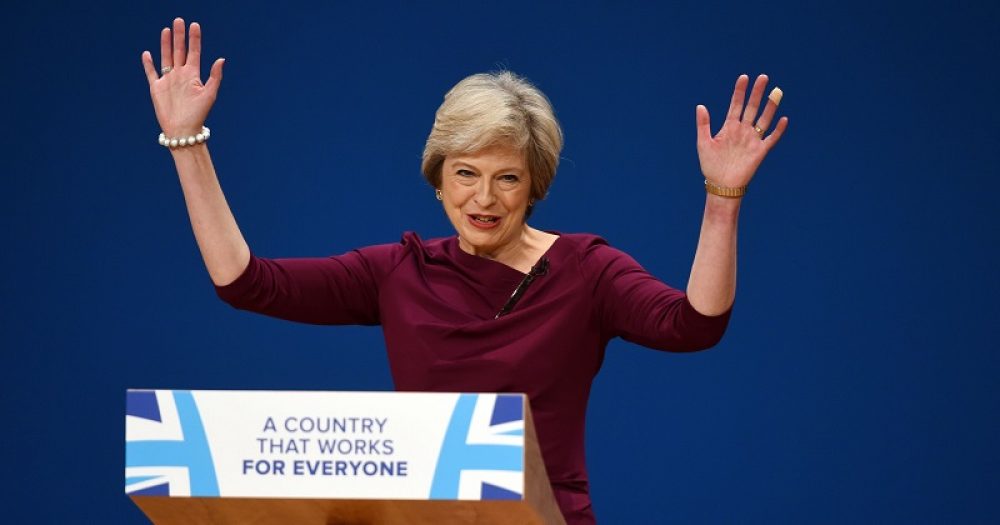The government will lift the ban on opening new grammar schools, the prime minister has announced, pre-empting the outcome of a consultation on the matter.
Theresa May told the Conservative Party conference in Birmingham this afternoon that the ban introduced by Tony Blair’s government in 1998 was a ‘scandal’, and pledged to lift it.
Her commitment to scrapping the ban comes despite the fact the government is currently consulting on whether new selective schools should be allowed to open in England.
Its green paper consultation document was launched last month and the public still has until November to respond, but May’s comments suggest that the idea of new grammar schools is already a foregone conclusion.
“Where there is demand from parents, where they will definitely take pupils from all backgrounds, where they will play a part in improving the quality of all schools in their area – we will lift the ban on establishing new grammar schools,” May told the conference.
She claimed that England had ended up in the “absurd situation” of preventing “good, popular, life-changing schools from opening – by law”.
May also said the ban on new grammars was an “illustration” of why “ordinary working class people think it’s one rule for them, and another for everyone else”.
“The message we are sending them is this: we will not allow their children to have the same opportunities that wealthier children enjoy.
“That is a scandal and we – the Conservative Party – must bring it to an end,” she said.
The prime minister’s comments make a tough floor-fight in Parliament almost inevitable, with the government’s thin majority in the House of Commons already looking shaky.
Schools Week understands that more than 30 Conservative MPs oppose the move to bring back selection, while others are said to have misgivings about other elements of the green paper, and opposition peers in the House of Lords have already pledged to block any legislation aimed at overturning the ban.








‘…where they will definitely take pupils from all backgrounds.’ But only if they’re bright. The not-so-bright and dim can go elsewhere, poor or not.
‘…we will not allow their children to have the same opportunities that wealthier children enjoy,’ says May about the working class. But, as noted above, that opportunity will only be available to the bright. Doesn’t matter what ‘class’ children are in, they won’t get into a grammar unless they pass the 11+.
But perhaps May is speaking about the money middle-class parents spend on coaching and tuition to shove their children through the selection test. This raises the awkward question about the real ability of children who’ve been hothoused in this way. If selection is to work in the flexible way May intends then pupils who don’t live up to the expectations raised by 11+ results should give up their place after Year 7, Year 8, Year 9… These could then be taken by high fliers not identified at 11. Brutal? Yes – but that’s what selection at 11 is. Those who argue for it should be careful what they wish for.
But Justine Greening ruled out the reintroduction or rather, more widespread use of the 11+ since she intends children to transfer to grammar schools when it’s age-appropriate. So what form of assessment will be introduced, I wonder? The DfE and assessment authority haven’t been doing too well recently, have they? The biggest problem, of course, for this anti-immigration government is that it is precisely that group – the children of aspirational immigrants who understand the power of education to improve life chances – that will pack the new grammar schools. And the best of luck to them, if we can’t stop grammars from being introduced in the first place. But I don’t think it’s what UKIP-leaning Tories really want, is it? The law of unintended consequences strikes again.